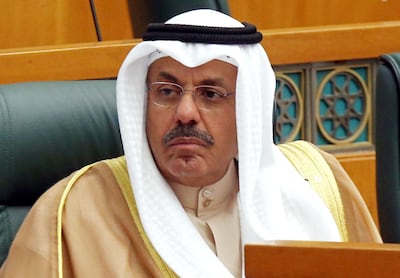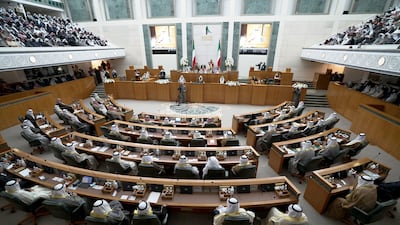Kuwait will hold a parliamentary election on Thursday, September 29, state news agency Kuna reported. This comes after the Gulf state's crown prince moved to dissolve Parliament in an attempt to resolve a political stand-off between the government and the elected legislature.
New districts will be added to the electoral map, according to a royal decree issued on Sunday.
Crown Prince Sheikh Meshal officially dissolved Parliament earlier this month. Under Kuwait’s constitution, general elections must be held within two months after Parliament is dissolved.
Sheikh Meshal later issued a decree forming a new government led by Sheikh Ahmad Nawaf Al Sabah, the son of the ruling emir, comprising 12 ministers.
The previous government under former prime minister Sheikh Sabah Khaled Al Sabah faced several months of political feuding and tension with the country's national assembly. Several members of the Cabinet, including the ministers of defence and foreign affairs, survived no-confidence votes in parliament.
Kuwait’s Emir Sheikh Nawaf and Sheikh Meshal issued a warning that “there are dangers and crises surrounding the country from every side” after dissolving the national assembly.

Candidates wishing to run for a parliamentary seat must be of Kuwaiti nationality and of Kuwaiti origin — and at least 30 years of age.
Kuwaiti voters replaced more than half of the last Parliament in December 2020 with 31 new members, including 22 who had never served in Parliament. A record 28 female candidates were in the running for the assembly's 50 elected seats, but none were successful.
“Observers are expecting voters to come out strongly during the elections this time around since the leadership’s decision to dissolve parliament came after efforts were made to raise the spirits of the nation by using the powers of the constitution," said writer Najem Al Shammeri on Kuwait national television.
The decision followed "years of infighting between the legislative and executive branches of government,” he added.


